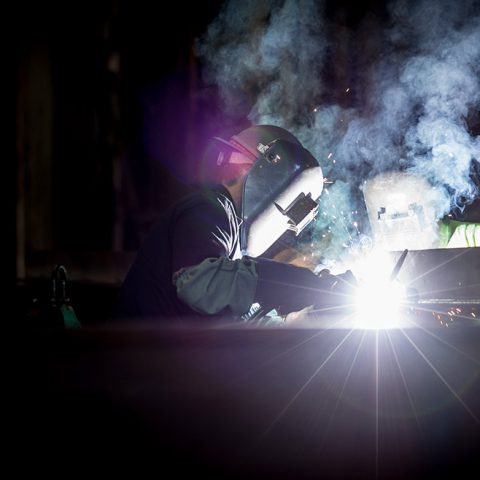Mechanical Engineering
Technically, mechanical engineering is the application of the principles and problem-solving techniques of engineering from design to manufacturing to the marketplace for any object. Mechanical engineers analyze their work using the principles of motion, energy, and force—ensuring that designs function safely, efficiently, and reliably, all at a competitive cost.
Mechanical engineers make a difference. That’s because mechanical engineering careers center on creating technologies to meet human needs. Virtually every product or service in modern life has probably been touched in some way by a mechanical engineer to help humankind.

Mechanical engineers design, develop, build, and test.
We’ve gotten the best solutions
Being ingrained in many challenges and innovations across many fields means a mechanical engineering education is versatile. To meet this broad demand, mechanical engineers may design a component, a machine, a system, or a process.
Our Solutions
This ranges from the macro to the micro, from the largest systems like cars and satellites to the smallest components like sensors and switches.
Industry Benefits
Anything that needs to be manufactured—indeed, anything with moving parts—needs the expertise of a mechanical engineer.
Agronomy Research
Mechanical engineering combines creativity, knowledge and analytical tools to complete the difficult task of shaping an idea into reality. This transformation happens at the personal scale, affecting human lives on a level we can reach out and touch like robotic prostheses.
Chemical biology brings the synthetic and analytical skills of chemistry to the study of living systems and harnesses those systems for the production of useful molecules. At Georgia Tech, chemical biologists work closely with chemical and biomolecular engineers to convert fundamental insights into practical applications.
Chemical biology brings the synthetic and analytical skills of chemistry to the study of living systems and harnesses those systems for the production of useful molecules. At Georgia Tech, chemical biologists work closely with chemical and biomolecular engineers to convert fundamental insights into practical applications.
Chemical biology brings the synthetic and analytical skills of chemistry to the study of living systems and harnesses those systems for the production of useful molecules. At Georgia Tech, chemical biologists work closely with chemical and biomolecular engineers to convert fundamental insights into practical applications.










